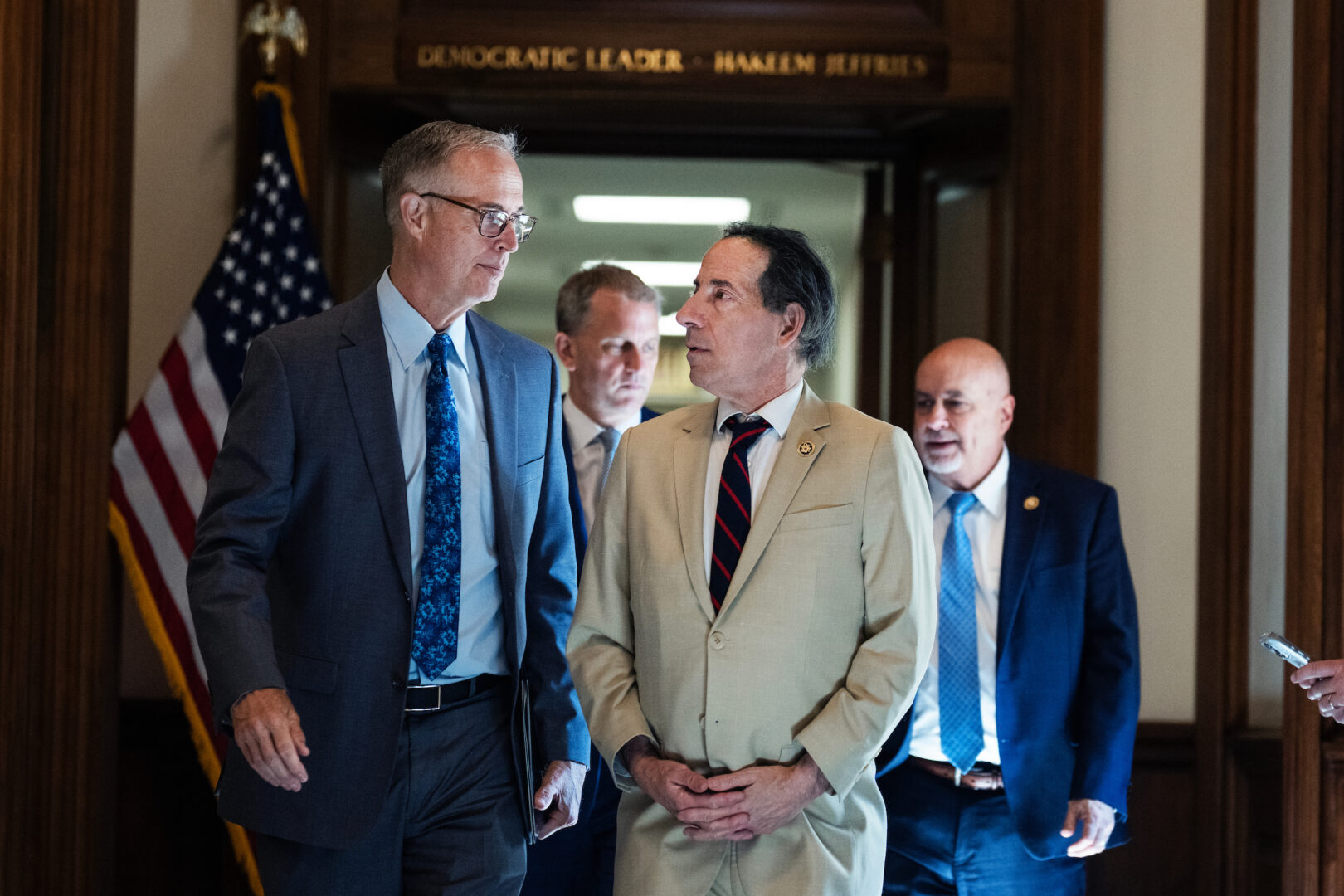Internal Strife In The House: Democrats Clash Over Seniority

Table of Contents
The Traditional Role of Seniority in the House
For decades, the House seniority system has been a cornerstone of Congressional operation. This system dictates that committee chairmanships and other leadership positions are primarily awarded based on length of service. This seemingly straightforward approach has deep historical roots, reflecting a belief in the value of experience and institutional knowledge.
- House seniority system's impact on legislative efficiency: The seniority system, in theory, streamlines the legislative process. Senior members, possessing years of experience navigating the complexities of Congress, are often seen as more efficient legislators, capable of shepherding bills through the legislative process smoothly.
- Benefits of experience and institutional knowledge provided by senior members: Senior members bring invaluable institutional knowledge, understanding the intricacies of committee processes, past legislative battles, and the nuances of working with different factions within the House. This expertise can be critical for successful legislative outcomes.
- Examples of successful legislative outcomes driven by senior members: Countless pieces of landmark legislation have been shepherded through Congress by senior members who leveraged their deep understanding of the system and relationships built over years of service. Think of the expertise needed to navigate complex budget negotiations or to forge compromises across party lines. These are skills honed over time.
Challenges to the Seniority System: A New Generation of Democrats
However, the traditional seniority system is facing increasing challenges from a rising generation of progressive Democrats. This new cohort advocates for a more meritocratic approach, arguing that seniority alone shouldn't dictate leadership positions.
- Rising voices demanding a more meritocratic approach to leadership: Younger Democrats are pushing for a system that rewards talent, effectiveness, and a commitment to progressive ideals, not simply longevity in office. They argue that a merit-based system could foster greater innovation and responsiveness to the needs of a changing electorate.
- Arguments for greater diversity and representation in leadership positions: Critics point to the lack of diversity amongst senior leadership as a significant flaw in the current system. A more meritocratic approach, they argue, could lead to a more representative leadership that better reflects the demographics of the party and the country.
- Examples of younger Democrats challenging senior members for key roles: Recent leadership elections and committee assignment battles have seen younger, progressive Democrats actively challenging the traditional seniority system, highlighting a growing tension between established power structures and a desire for change.
Specific Instances of the Democrats Seniority Clash
The "Democrats Seniority Clash" is not a theoretical debate; it manifests in tangible conflicts within the Democratic caucus. Several recent events illustrate the tensions:
- [Specific Example 1]: For instance, the recent battle over the chairmanship of the [Committee Name] saw a younger, more progressive member challenge the senior member's claim to the position, highlighting disagreements over the committee's direction and priorities. The outcome [summarize the outcome].
- [Specific Example 2]: The fight for leadership positions within the Democratic caucus during the [Year] elections also saw open challenges to senior members, reflecting the growing dissatisfaction with the traditional system. [Summarize the key issues and the outcome].
- [Specific Example 3]: Policy disagreements on key issues such as [Policy Area] have also been exacerbated by generational differences, with senior members prioritizing [their approach] while younger members advocate for [alternative approach].
Consequences and Future Implications of the Democrats Seniority Clash
The Democrats Seniority Clash carries significant consequences for the party's ability to govern effectively and maintain unity.
- Impact on legislative agenda and party unity: Internal conflicts can drain resources and time, hindering the party's ability to focus on its legislative agenda. A divided caucus is less effective in passing legislation and achieving its policy goals.
- Potential for weakened legislative power: Public perception of internal conflict can undermine the party's legislative power, making it harder to negotiate with the opposition party and secure legislative victories.
- The long-term effects on the party's image and voter trust: Persistent internal disagreements can erode voter confidence and harm the party's image, particularly amongst younger voters who are more likely to favor a meritocratic approach to leadership.
Conclusion
The Democrats Seniority Clash represents a pivotal moment for the Democratic Party. The traditional seniority system, once a guarantor of stability and experience, is facing a significant challenge from a new generation of Democrats demanding greater diversity, meritocracy, and responsiveness to the needs of a changing electorate. The outcomes of these internal power struggles will significantly shape the party's legislative agenda, its ability to govern effectively, and its long-term future. The consequences of this internal conflict are far-reaching, threatening party unity and potentially weakening its legislative power. The "Democrats Seniority Clash" is a story that will continue to unfold, impacting the future of American politics. Stay informed about the ongoing power struggles within the Democratic Party and how the "Democrats Seniority Clash" will shape the future of American politics. Follow [Your Website/News Source] for continued coverage on the evolving dynamics of the Democrats Seniority Clash and other key political developments.

Featured Posts
-
 Internet Loves Jeff Goldblum Viral Reaction To His Oscars Photo Review
May 06, 2025
Internet Loves Jeff Goldblum Viral Reaction To His Oscars Photo Review
May 06, 2025 -
 Konflikt Mezhdu Azerbaydzhanom I Bi Bi Si Chto Dalshe
May 06, 2025
Konflikt Mezhdu Azerbaydzhanom I Bi Bi Si Chto Dalshe
May 06, 2025 -
 X Stiven King I Ego Publichnaya Kritika Ilona Maska
May 06, 2025
X Stiven King I Ego Publichnaya Kritika Ilona Maska
May 06, 2025 -
 Spak Kontroll I Baneses Se Aldes Dhe Xhovanes Nikolli
May 06, 2025
Spak Kontroll I Baneses Se Aldes Dhe Xhovanes Nikolli
May 06, 2025 -
 Aliyevi Yev Natanyahvo Hamagvortsakcvo Tyvo Ny I Nch E Kapvo M Nranc Trampi Varchakargi Hyet
May 06, 2025
Aliyevi Yev Natanyahvo Hamagvortsakcvo Tyvo Ny I Nch E Kapvo M Nranc Trampi Varchakargi Hyet
May 06, 2025
